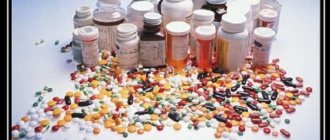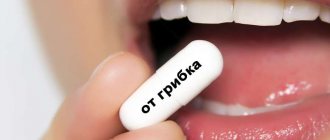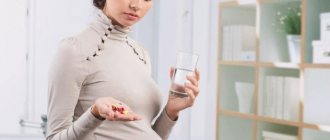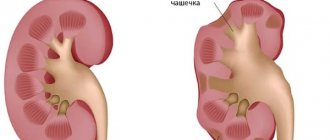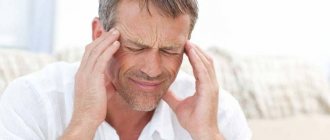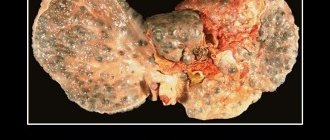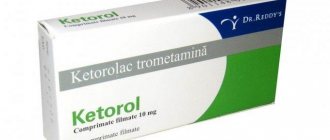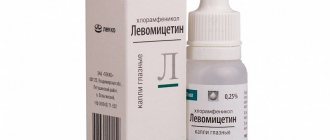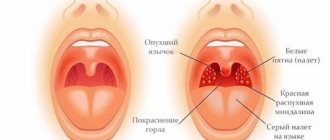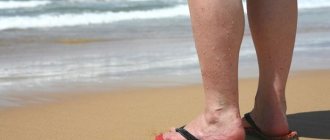Depression is quite common: according to WHO, more than 300 million people of different ages and gender suffer from it worldwide.
According to the American Psychiatric Association, this serious illness can take many forms, vary in severity among individuals, and co-occur with other conditions that cause similar symptoms, such as anxiety disorders.
Since the causes of depression are associated with disorders of the brain, it is useless to urge patients with depression to “pull themselves together” - its symptoms cannot be overcome by volitional effort, just as it is impossible to influence the functioning of the brain with volitional effort.
“Mood is our subjective experience, that is, what we can be aware of and about which we can give an account. Any psychological phenomenon is based on complex and multi-level processes that occur in our nervous system. In particular, neurochemical ones,” explains senior researcher at the laboratory of scientific foundations of psychotherapy, candidate of psychological sciences Maria Danina.
According to her, according to the monoamine theory, three different monoamine neurotransmitters contribute to depressive symptoms. Moreover, neurotransmitters do not “trigger” the disease on their own, but influence certain processes that, in fact, lead to depression.
Firstly, it is dopamine, which is involved in the motivation system. A lack of dopamine can lead to anhedonia—that is, the inability to experience pleasure.
Secondly, it is norepinephrine. It is involved in regulating our daily activities. Its deficiency is associated with psychomotor retardation (when a person begins to move and speak more slowly than usual).
And thirdly, serotonin. Which is involved in controlling the sensitivity of the pain system, suppresses pain signals and negative emotions.
A lack of serotonin leads to increased pain, negative emotions and anxiety. In addition, due to a lack of serotonin, obsessive states develop, associated with constantly recurring thoughts about the past and the reasons for one’s current condition, which are difficult to get rid of - psychiatrists call this rumination.
“In addition to reducing the level of neurotransmitters, other groups of biologically active substances, for example, glucocorticoids, can also contribute to depression,” notes Maria Danina. “For example, the level of the famous “stress hormone” cortisol also increases during depression - and this in turn leads to a lack of dopamine. Monoamine levels can be influenced by thyroid hormones and sex hormones: estrogen and progesterone.”
However, clinical depression can be triggered by many factors - for example, hereditary predisposition, low self-esteem, difficult life circumstances, severe stress and chronic diseases. And therefore, we cannot “place all the blame” only on disturbances in brain function, emphasizes Maria Danina.
Neurotransmitters and their effects depending on deficiency or excess
Antidepressants without a prescription
Today only the lazy do not treat depression. Psychologists with pedagogical education, coaches of all stripes, traditional healers and even hereditary witches. This whole heterogeneous company nevertheless reads something on the problem and understands that it is unlikely that it will be possible to cure real clinically significant depression simply by talking and laying on of hands.
And many who feel that they have begun to fall into a pit of depression, but are afraid to contact a psychiatrist, do not mind taking medications that could simply be bought without a prescription at the pharmacy. This is because the system of psychiatric care in our country still more closely resembles a light mixture of the army and the bazaar, because it is either immediately “registered” or for money!
We will immediately disappoint the audience with the message that today’s antidepressants are prescription drugs. If some commercial pharmacy, in violation of the rules, sells something without a prescription, then antidepressants will not become over-the-counter. They have a lot of serious side effects, so the advisability of taking them and individual selection of dosages should be carried out only by the attending physician.
AfobazoleAfobazol (270-320 rubles, 60 tablets) can be considered one of the mild antidepressants sold without a prescription. Indications: for somatic diseases with adaptation disorders - irritable bowel syndrome, bronchial asthma, coronary artery disease, hypertension, arrhythmia. For anxiety, neurasthenia, oncological and dermatological conditions. diseases. For sleep disorders (how to fall asleep quickly), for symptoms of PMS, neurocirculatory dystonia, alcohol withdrawal syndrome, for quitting smoking to alleviate withdrawal symptoms. Contraindications: Increased individual sensitivity, children under 18 years of age, during pregnancy and lactation. Application: after meals, 10 mg 3 times a day, no more than 60 mg per day, course of treatment is 2-4 weeks, the course can be extended to 3 months. Side effects: allergic reactions. |
Unfortunately, simply taking some antidepressant and hoping for quick relief from depression is futile. After all, depression and depression are different. On the same dosages of the same anti-depression medication, one patient achieves full clinical recovery, while another just begins to develop suicidal thoughts.
What are the best antidepressants to take?
Any sane person understands that it is better to be treated with those drugs prescribed by a specialist who understands this, is guided by treatment standards, information about the drug and his clinical experience in using the drug.
Turning your own precious body into a testing ground for antidepressants is, at a minimum, imprudent. If such a fixed idea has come to you, then it is better to find some Institute of Psychiatry, where programs for clinical trials of medications are regularly held (at least you will receive competent advice and free treatment).
In general, antidepressants are medications that elevate mood, improve overall mental well-being, and also cause emotional uplift without falling into euphoria or ecstasy.
Names of antidepressants
Antidepressants can be divided depending on their effect on inhibition processes. There are drugs with a calming, stimulating and balanced effect.
- Sedatives: Amitriptyline, Pipofezin (Azafen), Mianserin (Lerivon), Doxepin.
- Stimulants: Metralindole (Inkazan), Imipramine (Melipramine), Nortriptyline, Bupropion (Wellbutrin), Moclobemide (Aurorix), Fluoxetine (Prozac, Prodel, Profluzac, Fluval).
- Balanced action drugs: clomipramine (Anafranil), Maprotiline (Lyudiomil), Tianeptine (Coaxil), Pyrazidol.
All of them are divided into seven large groups, each of which has its own indications and preferences for certain manifestations of depression.
Tricyclic antidepressants
These are first generation drugs. They interfere with the reuptake of norepinephrine and serotonin at the nerve synapse. Due to this, these mediators accumulate in the nerve connection and accelerate the transmission of the nerve impulse. These means include:
- Amitriptyline, Doxepin, Imipramine
- Desipramine, Trimipramine, Nortriptyline
Due to the fact that this group of drugs has quite a lot of side effects (dry mouth and mucous membranes, constipation, difficulty urinating, heart rhythm disturbances, hand tremors, blurred vision), they are used less and less.
Selective serotonin reuptake inhibitors
- Sertraline - Aleval, Asentra, Zoloft, Seralin, Stimuloton
- Paroxetine - Paxil, Rexetine, Adepress, Plizil, Actaparoxetine
- Fluoxetine - Prozac, Fluval, Prodel
- Fluvoxamine - Fevarin
- Citalopram - Oprah, Cipralex, Selectra
Such antidepressants are preferable for neurotic depression, accompanied by fears, aggression, and panic attacks. The side effects of these medications are not extensive. The main one is nervous excitement. But large doses or overdose can lead to the accumulation of serotonin and serotonin syndrome.
This syndrome is manifested by dizziness, trembling of the limbs, which can develop into convulsions, increased blood pressure, nausea, diarrhea, increased physical activity, and even mental disorders.
That is why popular and good antidepressants like fluoxetine (Prozac), which enterprising pharmacists sometimes sell without a prescription, when taken uncontrolled or in excess of doses, can lead a person from banal mood disorders to a convulsive attack with loss of consciousness, hypertensive crisis or cerebral hemorrhage, or even all the way to the point where the roof went crazy.
Selective serotonin and norepinephrine reuptake inhibitors
They work similarly to the drugs of the previous group. Milnacipran and venlafaxine are indicated for depression with obsessive-compulsive disorder or phobias. Side effects include headache, drowsiness, and anxiety.
Heterocyclic antidepressants
Heterocyclic antidepressants (with receptor action) are preferable in the elderly and when depression is combined with sleep disorders. Cause drowsiness, may increase appetite and promote weight gain.
- Mianserin (Lerivon), Nefazodone
- Mirtazapine (Remeron), Trazodone (Trittico)
Monoamine oxidase inhibitors
Drugs of choice for depressive disorders with panic attacks, fear of open spaces, and psychosomatic manifestations (when depression provokes internal illnesses). They are divided into:
- irreversible - Tranylcypromine, Phenelzine
- reversible - Befol, Pyrazidol (Normazidol), Moclobemide (Aurorix)
Serotonin reuptake activators - new generation antidepressants
Able to overcome symptoms of depression in one week. They are effective for somatized depression with palpitations and headaches. They are also used for depression of an alcoholic nature or depression with psychosis against the background of cerebrovascular accidents. But these drugs can be addictive like opiates, they include: Tianeptine (Coaxil).
These strong antidepressants were no longer sold without prescriptions after many inexpensive high-seekers used them “for other purposes” for several years throughout the post-Soviet space. The result of such experiments was not only multiple inflammations and vein thrombosis, but also a shortening of life to 4 months from the start of systematic use.
Antidepressants of different groups
- Buspirone (Spitomin), Nefazadone
- Heptral (see review of hepatoprotectors)
- Bupropion (Wellbutrin)
What is it in medicine
In Latin, on which most medical terms are based, there is the word tranquillo.
Literally it means “to calm down.”
Hence the name of drugs that act exactly like this.
The main group of tranquilizers is based on benzodiazepine, a substance that reduces the excitability of neurons.
In terms of their spectrum of action, these drugs are very similar to sedatives, which simply cause drowsiness. Sedatives have not only a milder, but also less active effect and are produced on the basis of plant components.
There is another group of drugs with a similar effect - antidepressants, some even consider them almost identical. However, their effect is exactly the opposite.
If tranquilizers suppress nervous excitement and extinguish their activity, then antidepressants, on the contrary, remove the patient from a state of depression and depression due to the stimulation of positive emotions.
The main disadvantage of tranquilizers is that they quickly become addictive.
For this reason, a course of therapy with such drugs is usually prescribed for 2-3 weeks, no more.
List of new generation antidepressants
The most popular drugs today are from the group of selective serotonin and norepinephrine reuptake blockers.
- Sertraline (Sirlift, Zoloft, Stimuloton) is the “gold standard” in the treatment of depression today. Other drugs are compared with it in terms of effectiveness. Preferred in the treatment of depression combined with overeating, obsessive disorders and anxiety.
- Venlafaxine (Venlaxor, Velaxin, Efevelon) - prescribed for depression against the background of more severe mental disorders (for example, schizophrenia).
- Paroxetine (Paxil, Rexetine, Adepress, Sirestill, Plizil) is effective for mood disorders, melancholy and inhibited depression. It also relieves anxiety and suicidal tendencies. Treats personality disorders.
- Opipramol is the best option for somatized and alcoholic depression, as it inhibits vomiting, prevents convulsions, and stabilizes the autonomic nervous system.
- Mild antidepressants are fluoxetine (Prozac), which are somewhat weaker but milder than other serotonin uptake inhibitors.
Normotimic drugs
Medicines in this group have an antidepressant effect only in cases where the depressive state is caused by chronic affective diseases, such as bipolar affective disorder (BD, manic-depressive psychosis), cyclothymia, dysthymia, schizoaffective disorder. Most commonly used medications:
- Carbamazepine (finlepsin)
- Depakine chrono
- Lamotrigine (Lamictal)
- Lithium carbonate
Antidepressants and tranquilizers: difference between groups
In addition to antidepressants, tranquilizers are also used in the treatment of depression:
- This group of drugs eliminates feelings of fear, emotional stress and anxiety.
- At the same time, the medications do not impair memory and thinking.
- Additionally, tranquilizers can prevent and relieve seizures, relax muscles, and normalize the functioning of the autonomic nervous system.
- In medium doses, tranquilizers lower blood pressure, normalize heart rate and blood circulation in the brain.
Thus, tranquilizers mainly differ from antidepressants by their opposite effect on the autonomic nervous system. Also, tranquilizers have the greatest effect on fear and anxiety, which can be eliminated even with a single dose, while antidepressants require a course of treatment. Tranquilizers are more likely to cause addiction and their withdrawal symptoms are more pronounced and severe.
The main side effect of the group is addiction. Drowsiness, muscle weakness, prolonged reaction time, unsteadiness of gait, hand tremors, speech impediments, urinary incontinence, and weakened libido may also develop. In case of overdose, paralysis of the respiratory center and respiratory arrest may develop.
If tranquilizers are abruptly discontinued after taking them for a long time, a withdrawal syndrome may develop, manifested by sweating, tremors of the limbs, dizziness, sleep disturbances, intestinal dysfunction, headache, drowsiness, increased sensitivity to sounds and smells, tinnitus, disturbances in the perception of reality, and depression.
| Benzodiazepine derivatives | Heterocyclic drugs |
They remove all types of anxiety and are effective for sleep disorders, panic attacks, fears, and obsessive states.
| These are new tranquilizers. The most popular is buspirone, which combines the properties of a tranquilizer and an antidepressant. The mechanism of its action is based on the normalization of serotonin transmission. Buspirone perfectly calms, neutralizes anxiety, and has an anticonvulsant effect. Does not cause lethargy and weakness, does not impair memory, memorization and thinking. Can be combined with alcohol and is not addictive.
|
| Triazolebenzodiazepine drugs | Glycerol analogues – Equanil (Meprobomate) Diphenylmethane analogues – Hydroxyzine (Atarax), Benactizine (Amizil) |
Used for depression in combination with anxiety:
|
Are there non-drug treatments for depression?
In addition to medications, there are many non-drug treatments for depression. These are psychotherapy, biofeedback therapy, diet therapy, physical therapy, exercise therapy, reflexology, light and color therapy, sleep deprivation, etc. Most often, a combination of several methods is used to treat depression. For example: psychotherapy + drug treatment, biofeedback therapy + psychotherapy, medication + diet therapy, etc.
You cannot prescribe or use medications on your own. If you or your loved one is faced with the problem of depression, you need to see a psychiatrist or psychotherapist! Only according to his recommendations can you use drugs. Self-medication is life-threatening!
Overview of herbal antidepressants (without a prescription)
Antidepressants often include herbal sedatives, which are not antidepressants at all:
- Preparations of Valerian, Melissa, Peppermint, Motherwort
- Combined tablets - Novopassit, Persen, Tenoten - are sedatives that will not help with depression.
The only medicinal plant with antidepressant properties is St. John's wort and drugs based on it, which are prescribed for mild depressive conditions.
There is one thing: to eliminate the manifestations of depression, synthetic drugs, which are tens of times more effective than St. John's wort, have to be taken in courses of several months. Therefore, St. John's wort will have to be brewed, infused in kilograms, and consumed in liters, which, naturally, is inconvenient and impractical, although it can somewhat distract from sad thoughts about the frailty of all things during depression.
The pharmacological industry offers St. John's wort in tablet form without a prescription as a mild antidepressant (nootropic) for psychovegetative disorders, neurotic reactions, mild depressive states - these are Deprim, Neuroplant, Doppelhertz nervotonic, Negrustin, Gelarium. Since the active substance in the drugs is the same, the contraindications, side effects, and interactions with other drugs of these drugs are similar.
Deprim
Ingredients: dry standardized extract of St. John's wort. It has a pronounced sedative effect, since the active substances of St. John's wort - pseudohypericin, hypericin, hyperforin and flavonoids - have a positive effect on the functional state of the central nervous system and the autonomic nervous system. Increases physical activity, improves mood, normalizes sleep. Indications: sensitivity to weather changes, mild depression, anxiety, menopausal syndrome in women. Contraindications: severe depression, tablets are contraindicated for children under 6 years of age, capsules for children under 12 years of age, hypersensitivity - allergic reactions to St. John's wort and components of the drug, the effect of the drug on the fetus - there are no reliable studies, therefore it is not prescribed during pregnancy and lactation. Dosage: from 6 to 12 years only under the supervision of a doctor, 1-2 tablets in the morning and evening, adults: 1 capsule or tablet 1 r/day or 3 r/day, possibly 2 tablets 2 times a day. The effect occurs after 2 weeks of use; you cannot take a double dose if you miss a dose. Side effects: constipation, nausea, vomiting, anxiety, feeling tired, itchy skin, redness of the skin, photosensitivity - simultaneous use of the drug and sunbathing can lead to sunburn (see sun allergy). Tetracyclines, thiazide diuretics, sulfonamides, quinolones, and piroxicam especially enhance photosensitivity. Overdose: weakness, drowsiness, increased side effects. Special instructions: the drug should be carefully prescribed simultaneously with other antidepressants, triptans for migraines, oral contraceptives (see the harm of birth control pills), it is not prescribed simultaneously with cardiac glycosides, cyclosporine, theophylline, indinavir, reserpine. Enhances the effect of analgesics and general anesthesia. During use, you should avoid drinking alcohol, exposure to the sun and other ultraviolet radiation. If there is no improvement after a month of taking it, stop taking it and consult a doctor. |
Neuroplant20 tab. 200 rub. Ingredients: dry extract of St. John's wort herb, ascorbic acid. Indications and contraindications are similar to the drug Deprim. In addition, Neuroplan is strictly contraindicated for children under 12 years of age, women during pregnancy and breastfeeding, with increased photosensitivity, and is prescribed with caution for diabetes mellitus. Dosage: It is better to take before meals, do not chew, but take 1 tablet whole with water. 2-3 times a day, and if there is no effect within several weeks of use, the drug is discontinued and treatment is adjusted. Side effects: indigestion, allergic skin reactions, psycho-emotional stress, apathy, Quincke's edema. Concomitant use with other drugs: reduces the concentration of hormonal contraceptives and increases the risk of bleeding between menstruation. When taken simultaneously with antidepressants, the likelihood of side effects increases - unreasonable fear, anxiety, vomiting, nausea, as well as a decrease in the effect of amitriptyline, midazolam, nortriptyline. When taken with drugs that increase photosensitivity, the risk of photosensitivity increases. Neuroplant reduces the therapeutic effect of indinavir and other HIV protease inhibitors, drugs used to treat cancer that inhibit cell growth. |
Doppelhertz neurotonic250 ml. 320-350 rub. Ingredients: Elixir Doppelhertz Nervotonic - liquid extract of St. John's wort, as well as cherry liqueur concentrate and liqueur wine. Indications and contraindications are similar to Deprim and Neuroplant. Additionally: Doppelhertz Nervotonic should be taken with caution for brain diseases, liver diseases, traumatic brain injuries, and alcoholism. Side effects: rarely allergic reactions, dyspepsia, in people with fair skin with a tendency to photosensitivity - photosensitivity reactions. Application: 3 times a day, 20 ml. after eating for 1.5 -2 months, if there is no effect, you should consult a doctor. Special instructions: like other drugs with St. John's wort extract, interactions with other drugs should be taken into account when taken simultaneously. The drug contains 18 vol.% ethanol, that is, when taking the recommended dose, 2.8 g of ethanol enters the body, therefore you should refrain from driving vehicles and working with other mechanisms that require the speed of psychomotor reactions (driving a car, working as a dispatcher, working with moving mechanisms etc.) |
NegrustinNegrustin capsules - dry extract of St. John's wort herb
Indications, contraindications and side effects are similar to other St. John's wort preparations. Dosage: children over 12 years of age and adults, 1 capsule 1-2 times a day or 3 times a day, 1 ml. solution, course of therapy 6-8 weeks, possible repeated courses. Capsules should be taken during meals with liquid; the solution can also be taken diluted or undiluted during meals. Special instructions: Like other drugs with the active ingredient of St. John's wort extract, caution should be exercised when used together with the drugs listed above. Negrustin solution contains sorbitol and delivers 121 mg of it at each dose. The drug is also prescribed with caution to persons with fructose intolerance. Negrustin, with the simultaneous use of alcohol or tranquilizers, affects a person’s psychophysical abilities (driving vehicles and working with other mechanisms). |
